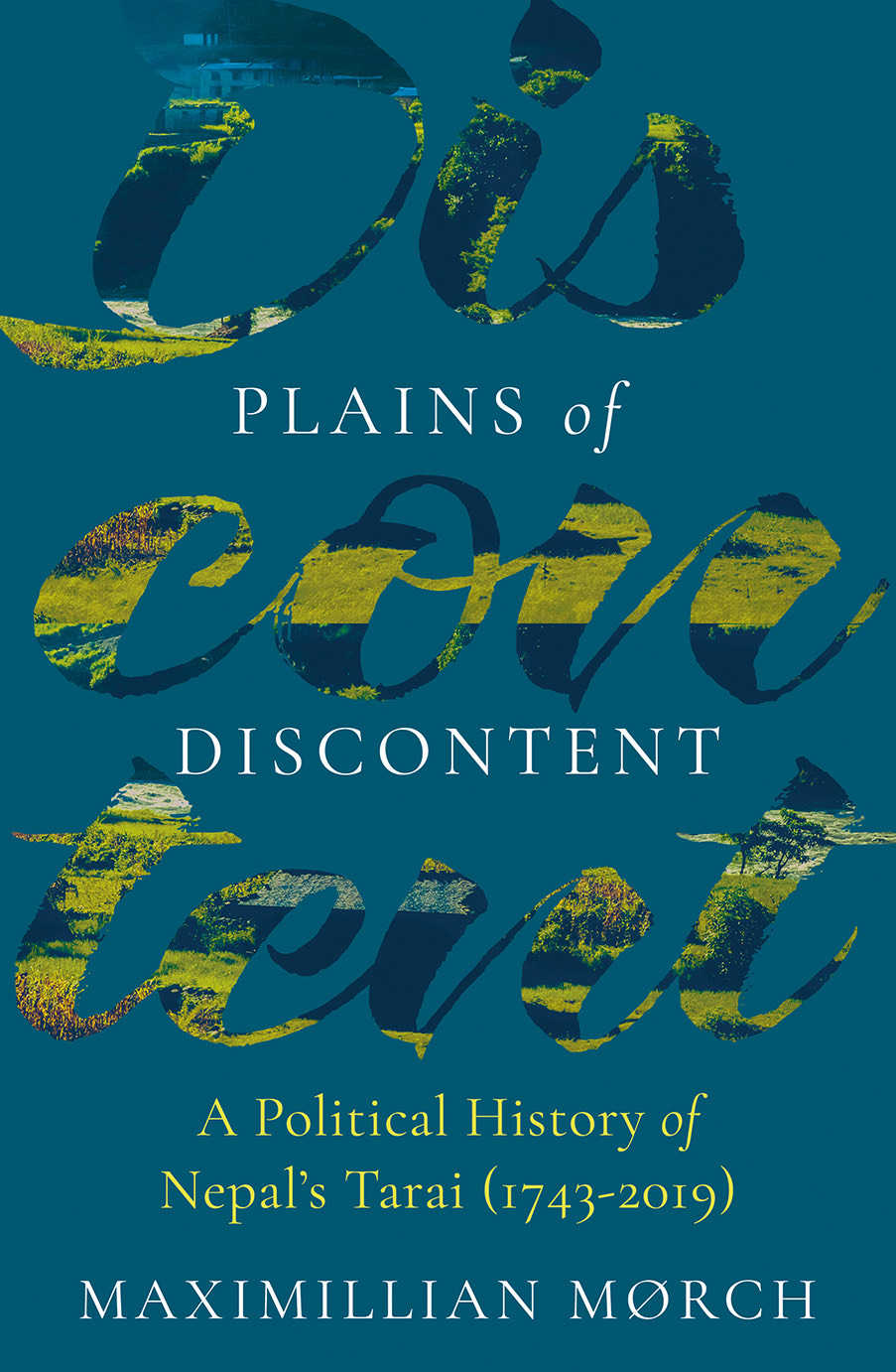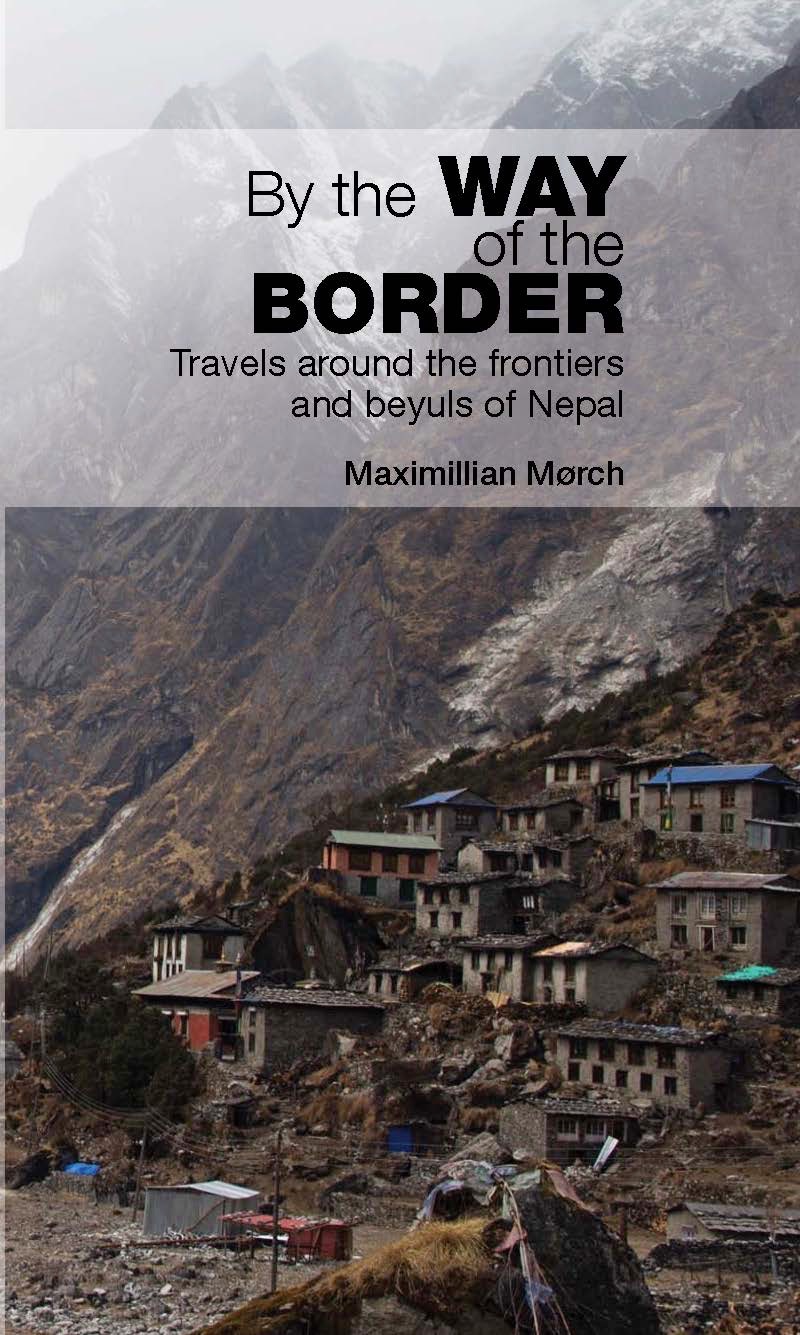Plains of Discontent: A Political History of Nepal's Tarai (1743-2019)

Plains of Discontent sheds light on an often-overlooked aspect of Nepal: the flatlands of the Tarai, where over 50% of the country's population resides. It is in the Tarai that bitter political movements and battles have taken place, raising fundamental questions about Nepali identity and the structure of Nepal as both a nation and a state. To fully comprehend the anger, resentment and discontent in the Tarai, the book argues, we must delve into its political history. Published in June 2023 by Fine Print. Available here https://www.amazon.co.uk/Plain...
Reviews
"Plains of Discontent has come as a fresh oasis in the otherwise stale and dry desert of historical literature of Nepal struggling for long to stitch together stray facts but unable to diagnose the recurrent discontent of different oppressed nationalities within the Nepali state and to synthesize a common identity or structural mechanism acceptable to all.
Based on loads of historical evidences from ancient to modern times of King Prithvi Narayan and King Mahendra, the book exposes the futility of the attempts of the ruling elites to forcibly tie up the historically different nationalities both in the Hills and the Terai within a particular cultural-religious identity. It, thus, builds a strong case for federal restructuring of the Nepali state on the basis of national-linguistic identities as demanded by the Madhesi,Tharu and other Janajati nationalities.
It is a must read for all progressive democratic forces committed to inclusive and participatory democracy, inside and outside Nepal." Baburam Bhattarai, Ph D Former Prime Minister of Nepal
"A rare and original text, Plains of Discontent is a history not of the victors but of the conquered of Nepal's Tarai. From the outset, it provides refreshing and novel insights into the history and aspirations of the people of the Tarai, uncommon in mainstream media and often suppressed in school textbooks. Starting from the Gurkhali conquest of the Tarai, the book walks the reader through an account of the deforestation, resource theft, land seizure, colonization, resettlement, disfranchisement and systematic suppression of the Madhesis, Tharus and other indigenous people in the region—factors that led to the civil war, the Madhesi and Tharu uprisings, and the independence movement. Mørch has done a thorough and remarkable job of bringing to light the historical rubbles of the land and the shattered aspirations of the people in the Tarai. He has basically resurrected a history." C. K. Raut, PhD, author of A History of Madhes and Member, House of Representatives, Nepal.
"The book is not just an in-depth introduction to the Tarai region but also a remarkable history of Nepal itself....“It is easy”, Mørch points out, “to justify the conquest of land if you believe it to be, or declare it as, uninhabited with no rightful owner, heritage, or living history.” In writing Plains of Discontent, he has addressed this lack of narrative so that the region can come to be engaged with it in its own terms, mindful of centuries of injustice its people have faced." Sonia Wadhwa - Asian Review of Books
"Mørch in his monograph seeks to explain Gorkhali internal colonialism, dispossession, political repression, exploitation and the creation of nationalist collective identities in the Tarai.... This book synthesizes key political events from the perspective of the Tarai’s people. It weaves important social, political and historical events through an extensive review of the published academic literature. For the reader who wants to read a fast-paced general narrative to understand the discontents of the Madheshis and Tharus, this book is an important contribution."
Sohan Prasad Sha. Studies in Nepali History & Society.
"Plains of Discontent is certainly worth a read. The author is clear in stating his goals for writing the book – as a public-facing argument calling for the restoration of justice, equity and inclusion at the heart of Nepali nation-building and state formation....a wealth of information about the various events that marked the way the history of the Tarai evolved...Plains of Discontent might well be considered part of the creation of a larger archive of public historical knowledge that promotes decolonial activism in the pursuit of justice, equity and inclusion in contemporary Nepal"
Bernardo A. Michael. European Bulletin of Himalayan Research
"This incredible, highly anticipated book has been my companion for quite a while, mainly because it’s diving headfirst into a topic that’s near and dear to my heart.... the author is cutting through the fluff and laying out the facts in a straightforward manner. No beating around the bush here...for those of you who have a genuine passion for political history, and are particularly intrigued by delving deep into the intricate political tapestry of Madhesh, this book is right up your alley. It’s a chance to explore this realm with a fresh perspective, free from the influence of the Nepali state or the media’s biased narratives. So, if you’re keen on gaining an unfiltered understanding, consider adding this to your reading list."
Chandan Kumar Mandal Friday's Fab Five Substack Newsletter
"This is a deeply insightful book to gain some perspective on what shapes Nepal."
"Its greatest contribution is in reframing Nepalese history from the perspectives of the various people of the Tarai - an often dispiriting tale of exploitation, marginalization (both political and social), and infighting - but key to both Nepal's successes as a nation and it's failures....Plains of Discontent has opened my eyes in many ways...his analysis is insightful. I had much to learn."
Amazon Review
"A valuable history of the Tarai. Morch explores the various historical and topographical factors that have shaped its history from its abundant timber resources and its history as a foreboding malarial swamp. He traces the impact of rulers both National and Foreign and explores the inequality between the ruling hill elites and the people of the Tarai. While allowing that surprising political progress has been made since 1990 much injustice and inequality remains. Morch invites us to explore its historical origins before framing possible solutions"
Amazon Review
Interviews/Media related to book
Literature can bridge the gap between communities - Interview with Anish Ghimire from the Kathmandu Post
Podcast with Nicholas Gordon from the Asian Review of Books
By The Way of the Border- Travels around the frontiers and beyuls of Nepal

Whilst studying at Nepal’s Tribhuvan University, Maximillian travelled to some of the furthest and least known corners of Nepal, from the Far West Himalayas and old Tibetan trade routes to the politically charged plains of southern Nepal. In this collection of travels, we see another side to Nepal than just tales of Everest.
This journey takes us from the largest glacial lake in the country to lunch with shamans and from conversations with failed Gurkha recruits to encounters with tigers and tourists.
Along the journey, Maximillian discusses Nepali history, politics, development, the post-earthquake reconstruction and much more.
Published by Varja Books. Currently on shelves in Nepal, India, Singapore and the UK.
Available online at Vajra Books, Ratna Books & Amazon.
Reviews
"Morch takes us on an entertaining journey to Nepal’s most far-flung corners, engaging with the people and sharing some hair-raising experiences in these remote regions. Interwoven with history, local knowledge and development insights, these adventures reveal much about life in Nepal’s more obscure and distant destinations. A ‘must read’ for off-the-beaten-track trekkers, less intrepid travellers will enjoy it from the comfort of theirarmchair." Lisa Choegyal Tourism Specialist, Conservationist and Writer
"[He] tells the story of not just Nepal's mountains but of the people who call them home, using descriptions that paint a vivid picture of his travels and help the reader to experience the journey through his eyes...Filled with extensive background research of the places he visited and of their inhabitants, the book acts as an abridged history that spans both the social and geographical changes of the region. Mørch also covers the symbolism and history of the traditions practiced by the people he meets, which could be useful to foreigners who wish to learn more about Nepal beyond Kathmandu" Rishabh Lama - Nepal Times
